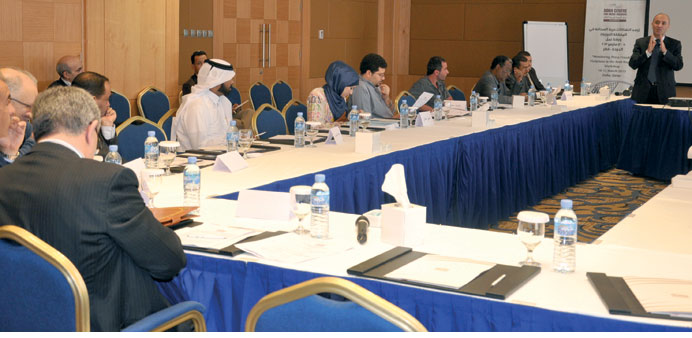The Arab world is sick of media as propaganda platforms and expects to be informed impartially, says Doha Centre for Media Freedom (DCMF) director Jan Keulen.
Keulen made the remarks at the recent 3-day workshop on Monitoring Press Freedom Violations in the Arab World, which included experts from the region.
The DCMF workshop produced a set of recommendations to improve press freedom in the future.
The workshop included a variety of panel discussions that brought together international and regional experts to share their experiences of monitoring press freedom violations.
One of the key issues which emerged throughout the course of the workshop was the fact that it is becoming increasingly difficult to define exactly what a journalist is. The advent of modern technology, online platforms and social media mean that creating an objective standard or definition of journalism is almost impossible.
Participants also suggested that while the revolutions in the Arab world helped to break down a lot of the fear that journalists and citizens faced under previous regimes, the emergence of various factions in a number of countries has meant that many journalists are facing pressure from different directions now, bringing with it threats, harassment and in some cases violence.
Keulen highlighted the importance of monitoring in forming the basis for combating further press freedom violations and the culture of impunity around the world.
“In the Arab world, the cry for freedom has been loud, clear and dramatic. People want to work, to eat and to know. They are sick and tired of media as propaganda platforms. They expect to be informed fully and impartially. They want the truth. There is a great need for ‘good journalism’, for breaking the barriers of fear and the traps of incitement and partiality,” he said.
Keulen mentioned the UN’s global action plan on the Safety of Journalists and the Issue of Impunity, highlighting that journalists continue to be killed with impunity across the globe.
He suggested that NGO’s focused on protecting press freedom could lobby the Arab League to create an official rapporteur for the issue in the region, in the same way that other regional organisations have independent yet authoritative officials to speak to governments about press freedom.
As well as providing numerous challenges in terms of defining exactly who journalists are, social networking and online media are putting pressure on media organisations to respond to reports of press freedom violations almost immediately.
Committee to Protect Journalists executive director Joel Simon argued that the credibility of sources plays a major role in supporting the credibility of the organisation concerned, suggesting that it is essential for advocacy work to stand up to the scrutiny of others who might “use it in bad faith.”
The participants agreed to develop and exchange expertise between the different rights groups and increase training programmes to improve their capacity to address press freedom abuses and stop impunity.

Participants at one of the discussions during the workshop.
